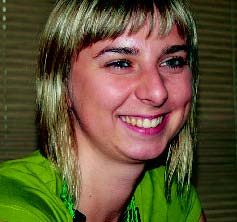When Zuzanna Zelazny decided to move to Ireland, she thought that she would have to put her Master’s degree in clinical psychology away for some time.
Yet five years on, she is now a practicing psychotherapist and a partner in a new business venture in the field. However, starting out wasn’t easy.
Taking jobs at a crèche and a school to get accustomed with the English language and Irish culture, in her spare time Zelazny began training in psychotherapy. It was a demanding schedule, requiring weekend classes in Poland once every month, but she was to face further barriers still.
To have her Polish psychology degree recognised in Ireland, Zelazny needed additional work placements – which were hard to come by.
“I had worked with children as a part of my college course, but here only placements done during postgraduate course are considered,” she explains. “Irish hospitals are used to taking students as interns; a person like me doesn’t fit in their placements system.
“I know only one person who successfully went through the process and found employment in the profession,” she adds. “A different system of placements, even letting people work on a volunteer basis, would open the door to psychologists from other countries to work in Ireland and would improve services for immigrant clients.”
Zelazny appreciates that Irish healthcare system is trying to adapt to new circumstances, but recognises that more needs to be done.
“Often an interpreter is called to translate during a session. However this is not ideal. It is naturally easier to communicate personal issues in the native language,” she notes. “It is also less comfortable when there’s someone else there.”
She draws attention to cultural differences in accessing mental health services. In Poland, people looking for consultations can go directly to a psychologist, whereas in the Irish system the first point of contact is a GP or counsellor.
The Pro Integration Centre in Kildare, where Zelazny works, is seen by many as a model for best practice in the area.
“It has been set up thanks to-open minded social workers from the Co Kildare Leader Partnership, particularly Eliska Shneiderova,” she explains. “The service is free and many immigrants, as well as a few Irish people in difficult situations, attend sessions and workshops with psychologists.”
“I have noticed increasing interest from Irish people in our workshops,” says Zelazny. “In Ireland I feel there’s a lack of ‘psychology for people’, allowing people to learn something about themselves without going into deep analysis. How to deal with stress in life, how to get more confidence or energy, or how to be more assertive.”
In view of this, she co-founded The Psychology Hub, which presently offers personal development and social skills training, and will be providing information outlining its services during the Innovation Dublin week of events next month.
Aside from her work, Zelazny enjoys living in Ireland. “Here I have time for work and for life,” she says, though she is unsure if her stay here will be a permanent one.












